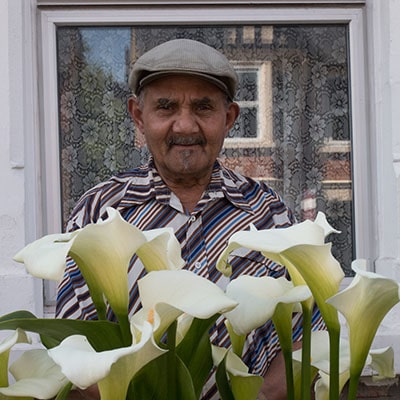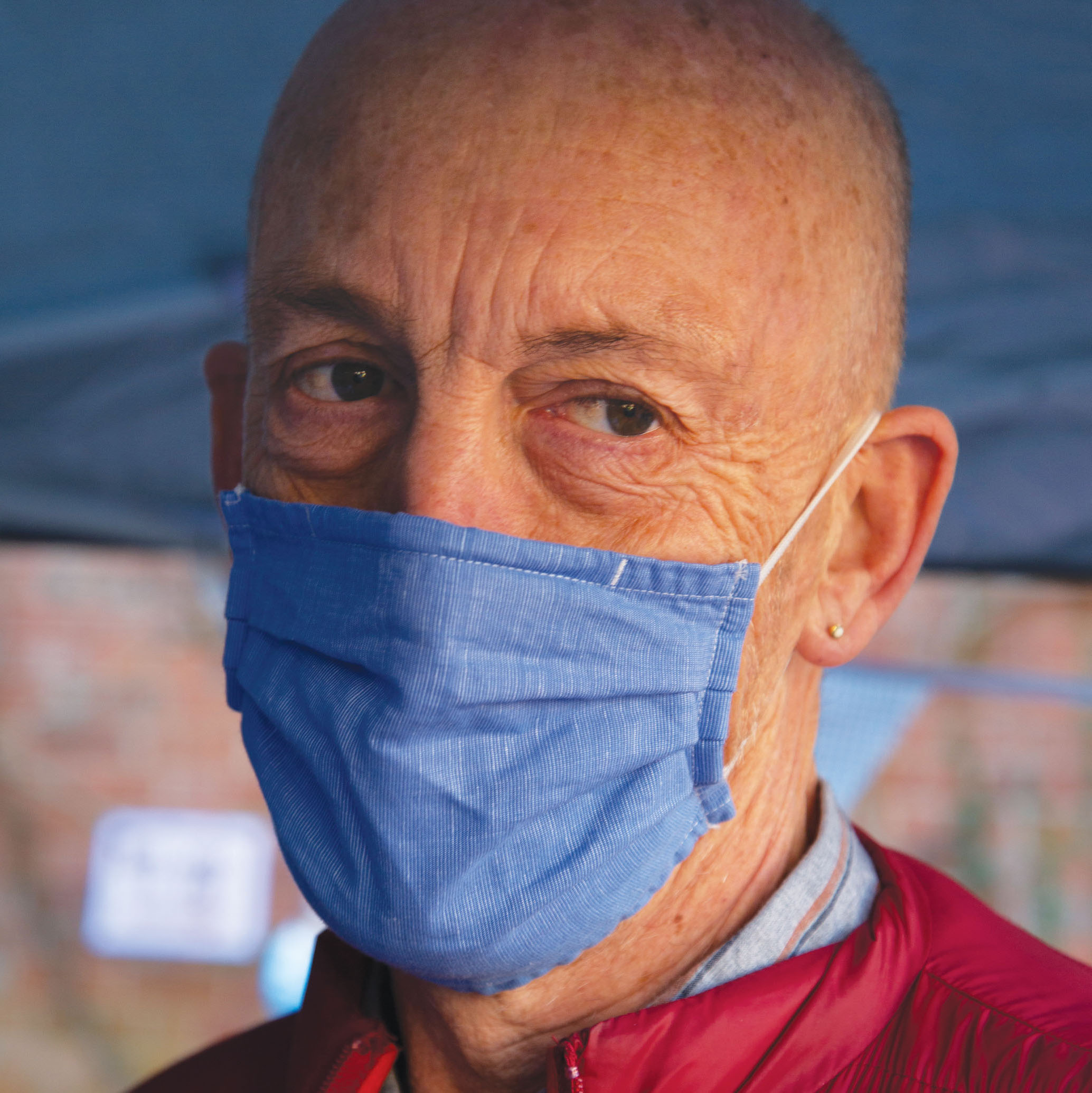All will be well… in time
This is the story* of a young man Ernest Thomas, at war. Thomas was born on Christmas day 1895 and brought up on Kingston Road in north Oxford, his father a ‘brewer’s traveller’ for Halls Oxford Brewery, with his mother Florence bringing him up along with three younger sisters Peggy, Kathleen (Kathy) and Marjorie. Ernest went to work as an apprentice dispenser at Boots the Chemist in the city centre after he left school, and enlisted in the Oxfordshire and Buckinghamshire Light Infantry (OBLI) in October 1914. Being under 19 he still needed parental permission to engage in overseas service, which he forgot to seek and so was unable to join the OBLI until March 1915, when he was assigned to their 1/4 Battalion as a Private. This book is a record of the time from when he joined the OBLI in Northampton for basic training to his death in the Battle of Cambrai in November 1917 at the age of 21.
The origins and construction of the book are in themselves fascinating and tell us much about how people responded to this great national and personal trauma. Thomas wrote to his family regularly even in the most difficult periods of the war in the trenches. He also kept a diary from the beginning of 1916 and had a camera with him which he used regularly, sending the exposed films back to be processed by his old employer, Boots. Incredibly all these source materials all survived in the care of the family though the letters and diaries were only rediscovered by one of his grand-nephews on the death of his sister Kathy in 1998. They had been carefully kept but never referred to, by his grieving parents, passed on by them to their middle daughter who in turn stored them hidden behind sheets and towels in their airing cupboard.
The book therefore is a remarkable and sensitively edited compilation of material from these personal sources, supplemented by relevant material drawn from the official regimental history, The London Gazette and material from military archives such as the letters of recommendation sent by various grandees when he was being considered for an officer commission. The letters themselves as the editors acknowledge are at times bland, a result of military censorship – many of them were sent in special ‘On Active Service’ green envelopes for which the sender had to sign a certificate on the back confirming that contents referred only to ‘private and family matters’, and because like many others caught up in the horrors of the trenches and the mass slaughter of the set-piece battles, he had no wish to relay this information to his family, who would be able to do nothing about it. The diaries on the other hand, although much more telegraphic in style were meant for personal consumption only and are considerably more graphic. They record the deaths of comrades, his own narrow escapes, and the extraordinary privations that ordinary ‘Tommies’ had to endure, including weeks of freezing weather, days of operating in trenched filled with water – there are joking references to how the Navy would be more use than the Army, the constant bombardment by enemy shells, the impact of discovering rotting corpses while having to dig new trenches and of comrades cracking up under the strain.
Throughout this Thomas retains a cheerful perspective in his letters home, talks of the woodland flowers in the Spring, apple blossom and birdlife, remarks frequently on how fit and healthy he is, takes a resolutely optimistic perspective on the course of the War, and makes plenty of supportive comments about how hard things must be for his family at home, even at one point writing a prescription for one of his sister’s chilblains. Not everybody is spared. He has little time for men of his age who haven’t already enlisted, known as ‘Derby Men’ who volunteered for war service but didn’t actually enlist until called upon. ‘Shirkers’ he thought. Equally he wondered in letters home just how actively the war would have been prosecuted if politicians and top military men had had to spend a few weeks in the trenches in winter themselves – a view often echoed in wider society. Nonetheless he says nothing about his feelings about senior military and their strategic incompetence. Thomas started out as a Private, but soon became a stretcher bearer, and was heavily involved in the Battle of Verdun, where he was ‘mentioned in dispatches’ for bravery and was awarded a Military Medal for rescuing wounded comrades from no-mans-land while under fire during the Battle of the Somme. A letter home written ten days into that ill-fated campaign is unusual in its graphic nature, written with the purpose of illustrating ‘the bravery and discipline of our men’. Having explained that a comrade had been hit in the thigh by machine-gun fire between the lines he goes on; ‘[he] had not been down long when a shell burst near and fragments smashed his arm, and later German snipers shot his foot, and thus with these terrible painful wounds he lived between the lines for five and a half days….he crawled about on his stomach and as his leg was broken and therefore had lost use, he tied a puttee round his boot and then tied it to his neck and as he wriggled about he trailed his leg also. He lived on his dead comrades rations for two days and when these gave out he drank rain and lived on grass. When we rescued him, his teeth were green and he had grass in his mouth.’ It was a redemptive story; ’When we had dressed his wounds and given him stimulants, he seemed most bright and cheerful and his first words were ‘How are the boys going with the battle?’’.
Much more commonly, the letters contained requests for provisions and treats to be sent out in parcels and it would seem that something arrived from home every few weeks, ranging from home grown pears, various meats including pheasant, hare, and ham to a regular supply of writing materials including blocks of paper, envelopes, pencils, pens, ink and regular rolls of film. Keeping up appearances was important too, and requests for brilliantine, shaving materials, a mirror and unsurprisingly considering the appalling conditions the troops had to survive in, a mackintosh, each winter. One of the most surprising aspects of these exchanges was the way he, and presumably other soldiers sent back keep-sakes from the front, not just items made from spent shell cases but even souvenir grenades!
Another surprising dimension to the story is Thomas’s interest in photography. The editors refer to a photo album from the War which also survived in the family with ‘100 or so photographs he took’ a couple of dozen of which are reproduced in the book. The Government went to enormous lengths to make sure that journalists and war artists were kept well away from the most dramatic and gory theatres of war for fear that graphic images or reports would undermine morale at home. Yet here was a Private on the front line of a terrible war – extensively reported in the press from well behind the lines, snapping away as if he was on the beach. Quite a few photographs reproduced are of Ernest himself, smoking his pipe or even dressing up when off-duty, but most are of destroyed villages and churches, comrades up to their waists in water in trenches, sleeping quarters in ruined barns or in their dugouts – ’my home’, holding enemy ordnance or writing letters home. The quotidian of front-line life. These alone would have given his family a somewhat different perspective on the nature of war at the sharp end than that given by his letters, when they picked up the prints from Boots.
Needless to say the story doesn’t have a happy ending. Thomas was considered an exemplary Private and as the war dragged on – somewhat to his surprise as in his letters he was expecting the ‘Boche’ to surrender at any moment, he was commissioned as an officer after several months training back in England, in August 1917. After a few days leave with his beloved family, he returned to the front as a Second Lieutenant. In this officer position he began a much longer narrative-style journal, but he was back in France barely a month before the commencement of the Battle of Cambrai. He was killed instantly by machine-gun fire leading his troops into battle on the morning of the first day, 20 November 1917. Second Lieutenants were the rank most likely to be killed in the War, something he would have known when he took the Commission.
‘All will be well..’ is a moving and fitting memorial to the memory of a young man caught up and torn apart in the tides of history, which sheds a piercing light on both his life doing his duty as he saw it to his country, and on the unspoken agonies that that must have put his family through back in Oxford. Their fierce desire to hang on to his memory in the form of his letters, diaries and photos, allows us a century later to reflect on the futility of war and the risks we are taking now with the structures and institutions that have bound European nations together imperfectly but peacefully for the past seventy-five years.
*All will be well…. in time: the letters diaries and photographs of Ernest Thomas a soldier in the Great War. Kingsley A, Butterworth R, and Mantin P, (eds). Blue House Books 2020.
This article first appeared in Oxfordshire Local History vol 10 no4 Spring 2022.

